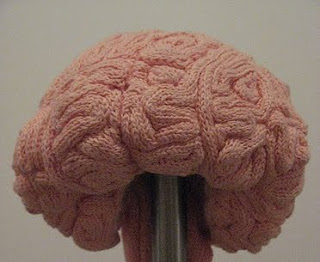Tuesday, August 17, 2010
The Now... spotted on the web.
Our cultural fascination with the Now, with the notion of some current wave of coolness that we are all swimming as fast as we can to catch, is a core driver for culture industries. How much are you willing to pay to stay on the carousel?
Saturday, June 12, 2010
Mapping the places of serious games
We live in a world filled with maps. Google Maps take us from a planetary perspective down to a name on a door. But the maps we create today are almost entirely of a kind. The corners, the shadows, the tactical escape routes and the ephemeral meet-up places that serious games require and construct are all absent from these modern maps. In Junana, the software aggregates member content into walkable representations of cities. There are no maps of Castalia, although its members could draw some. The scenes and the plazas of Junana are lived spaces, waiting to be mapped in some new fashion that can reveal their logics.
In the Knol "Serious Games and the Study of Place" I show the need for other maps, if we are to capture the key activities of society and culture:
"In the course of modernity one might note a shift away from maps that acquire meaningfulness during an activity, that inform and are com pleted through the activity, to a type of map that can be created and then interpreted without the experience or memory of such engrossment. The dis tinction between maps the interpretation of which requires a link to en grossment in activities and those that do not is, of course, determined by this feature of the realms/places the maps describe. As modernity is bound up in the devaluation of knowledge/meaning tied to bodily activities (in favor of disembedded meanings, rational discourses, experimental reasoning, etc.) there is a corresponding devaluation in the production and interpretation of maps of such realms (in favor of maps of spaces, satellite images, topo graphical representations, etc.). The field of hyper-locality emerges in the vacuity of de-activated places. Once the activities that sustained these places disappear, there is no place left to “save,” no “there” there to take away. The task facing the ethnographer is thus two-fold; to acquire knowledge of a place (as thickly described, to use Geertz’s term) and also to develop the theoretical and practical means to map (represent) this place."
Image: Illuminated Manuscript Map of Cairo, from Book on Navigation, Walters Ms. W.658, fol. 305b, a Creative Commons Attribution Non-Commercial Share-Alike (2.0) image from medmss's photostream
Saturday, March 06, 2010
Getting serious about games: are you a player or a pawn?
Sociology has long searched for a basic handle on the notion of action. In a paper I wrote many a moon ago, and just published as a Google Knol, I posit that we can extend the metaphor of "gaming" as a useful tool to examine social action. In this description of gaming, I look closely at how the game controls the attitudes of its players. It does this not through some overt coercive force, but by rewarding the proper attitude with a range of subtle benefits. If society as a whole is a giant hierarchy of serious (and not so serious) games, then how can this be resisted? Here is a quote from Serious Games:
"Serious game theory suggests that real subversion takes place on the level of the trivial, that cultural change occurs when those aspects of culture that culture takes seriously (its myths) are subject to the trialectic process—a process that has no overt leaders or followers and no defensible agenda, no counter-culture, no planned covert actions. And so, a particular culture change cannot be orchestrated, the trialectic process cannot be aimed at anything specifically; the trialectic process of cultural change can, however, be generally nourished by encouraging the venues where trivial actions take place, where farce and fantasy are encouraged. Amateur theatres, dark cafés, underground presses, rock and roll concerts, back alleyways, pirate radio stations, street festivals, costume parties, dorm rooms, circus side shows, church socials, office parties, universities (ideally): wherever people meet, and whatever they do and think without risk, will feed the trialectic process. Conversely, the threat of trialectic change is best preempted by controlling these same venues, by colonizing the world of the trivial. In short, if the revolution is to come (and who knows where this will take us) the coffee shop must be recaptured from the underwriters (Lloyds of London was a coffee shop) and from the avant garde, who take it all too seriously, and preserved as a sanctuary for the trivial."
Photo Credit: cc license by olivander http://www.flickr.com/photos/olivander/280763240/sizes/s/
Sunday, February 28, 2010
Junana answers one of Obama's "grand challenges" for education
In late September of 2009, President Obama laid out his design for building a new America, based on our combined efforts to meet a series of "grand challenges." Education was one of his top priorities. And what he said could not have been more to the point: we must develop "[e]ducational software that is as compelling as the best video game and as effective as a personal tutor; online courses that improve the more students use them; and a rich, interactive digital library at the fingertips of every child."
See: Strategy for American Innovation
Of course, what he suggested is that we take the alternative reality of Junana and turn this into our future! Junana is built on the premise that education can turn the fun of gaming into a learning environment where a personal tutor (Guide) helps the student through a series of lessons that improve as the Game progresses, based on the use of the entire Internet as a coherent digital library.
It is a comfort to see reality catching up with science fiction again!
Photo Credit: http://www.flickr.com/photos/smoy/4038767923/sizes/s/ CC licensed by theonlyone
Saturday, October 03, 2009
Games that Teach: Junana in a non-alternative present!
Junana mined a lot of research being done on the use of games in education. PBS did a program about this. Check out the Games that Teach section on PBS's Digital Nation site. We need to stop asking when schools are going to integrate gaming into their curriculum, and ask how!
Photo Credit: http://www.flickr.com/photos/rofi/2647699204/sizes/m/ rofi cc licensed
Thursday, September 24, 2009
Prankmeisters are real... or not
In Junana, Scratchy spent a good deal of time at college working out pranks to gain cred and have fun. In the actual Reed College there is a fine tradition of pranking, one that has the entire city of Portland on edge at times. One of Reed's former prankmeisters, Igor Vamos, joined in the Guerilla Theater of the Absurd, and pranked the campus and the town for years. Now a member of the Yes Men, he continues to bring live theatre into corporate meetings across the planet.
What is the essence of a great prank? It has to be more than a simple joke. A great prank needs to mine the river of absurdity that all forms of the serious create by their posturing. The serious and the absurd are linked at the waist, and the prank flings open the curtain on this fact.
photo credit: http://www.flickr.com/photos/oter/3574042146/ oter cc license on flickr
Monday, September 14, 2009
Do the Brainwave exercises and Jorge will smile at you

How does the Brainwave in Junana work? Why don't schools use this now? These are questions I've gotten from readers. I have to remind them here that Junana is fiction. The Brainwave exercise is based on current research into "brain-based education." The links between education and the workings of the brain have been explored for quite a time. Harvard's Graduate School of Education has a program called Mind, Brain, and Education, which is devoted to advancing knowledge in this area. In Junana, the Brainwave looks at the intersection between short- and long-term memory. It proposes some physical movements that help the brain open up long-term memory so that students retain more of what they experience. This is the type of potential impact that new brain-based education findings are looking to achieve. Eric Jensen has a great overview piece on brain-based education.
Don't forget to do the Brainwave everymorning... or drink your latte!
photo credit: http://www.flickr.com/photos/urbanmkr/266895606/ urbanmkr cc license
Subscribe to:
Posts (Atom)










